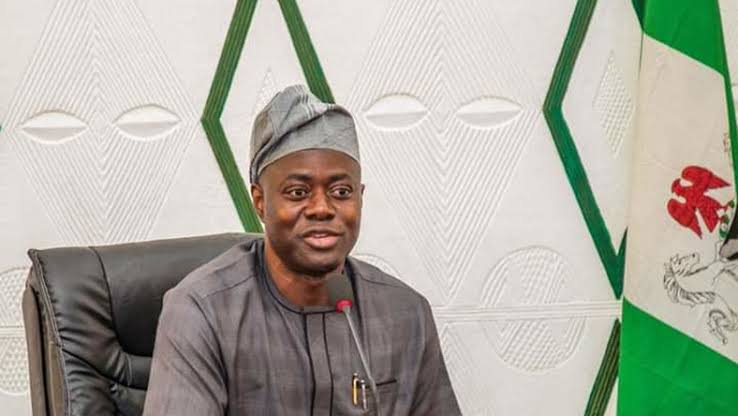Governor Seyi Makinde of Oyo State on Monday, signed into law the state’s 2020 appropriation bill of N213,788,033,002.97, maintaining that the targeted 70 per cent implementation remains.
The approved budget is an increase of about N4.985billion from the N208,802,972,878 billion presented on the floor of the state Assembly on November 27.
The 2020 budget is composed of recurrent expenditure of N110.427,855,919 billion and capital expenditure of N103.360,177,083.97 billion.
The highest sum of N49.97billion was set aside for infrastructure development out of which the sum of N35.4 billion is provided for ongoing and proposed road projects.
Some of the proposed roads for 2020 are Airport Runway; Airport road; Airport, Ajia, New Ife Express to Amuloko; Odo-Ona Kekere, Arapaja; Akala way, Wofun; Idiko, Wasinmi; Isaba, Ogundoyin road Eruwa; Under G, Stadium LAUTECH gate; Ajaawa Roundabout, Ajaawa market; Apete, Awotan Akufo.
Others are FBC Agbeja-Apata, Ajaawa-Okeayo; Oko Arolu road, Surulere local government; Akobo, Olorundaaba, Oritamerin; Ogbomoso INEC, Iresaaadu; Akobo, Olorundaaba, Oritamerin; Saki Igboho; Gedu, Oroki, Sabo, Asipa Oyo; Ogbomoso, Igbeti, Oriire local government.
In the budget presented by Makinde on November 27, an estimated 23.93 per cent was allocated to be expended on ongoing and proposed road projects; 22.37 per cent on education, 5.18 per cent on the health sector while 4.43 per cent is to be devoted to Agriculture.
Speaking on why the Assembly increased the budget by about N5 billion, Speaker, Honourable Adebo Ogundoyin explained that the increased allocations were geared towards the development of rural areas.
“There are some fundamental things to us in the rural environment, most of the funds increased is geared towards the development of rural areas.
“We are talking about the increased power supply, better access to clean and potable water, programmes to help the artisans in order to expand the rural economy rather than burdening our people by imposing taxes on our people,” Ogundoyin said.
